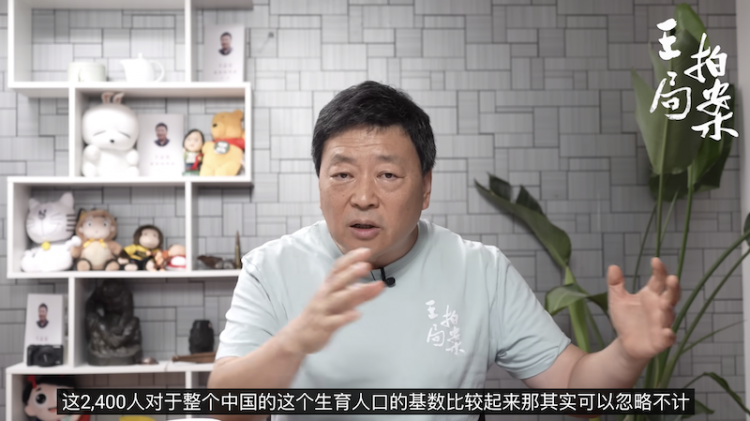China has announced it will no longer facilitate international adoptions, a move that has raised concerns and prompted debate about the true reasons behind the decision. In a press briefing on Sept. 5, Chinese Foreign Ministry spokesperson Mao Ning said that, except for foreigners adopting close relatives or stepchildren, the country would cease sending children abroad for adoption.
"We appreciate the care and love foreign governments and adoptive families have shown for Chinese children," Mao said, adding that the decision was in line with international conventions.
While some experts, including demographer Yi Fuxian, have suggested the decision is a response to China's population crisis, others are not convinced. Prominent Chinese journalist Wang Zhian, known for his investigative work, offered a different explanation.
In a recent video posted to his YouTube channel, Wang questioned whether the country's declining birth rates and aging population were the real reasons for the policy change. According to statistics from China's Ministry of Civil Affairs, between 2014 and 2018, there were an average of about 2,400 international adoptions annually, a number Wang argues is too small to significantly impact China's population.
Wang suggested that the decision may be more influenced by concerns over China's image, as many children adopted internationally have gone on to lead successful lives, particularly in sports. These success stories, he said, could highlight shortcomings in China's own orphanage system and care for abandoned children.
One notable example is swimmer Maggie Mac Neil, a Chinese-born orphan adopted by a Canadian family who won a gold medal in the 100-meter butterfly at the 2021 Tokyo Olympics. Another is Li Na, who was abandoned as a baby and adopted by an American family before becoming a world champion gymnast in 2023.
Wang believes the achievements of these athletes, who would have likely grown up in Chinese orphanages, have embarrassed Chinese authorities. He pointed to reports that during the 2021 Winter Olympics, Chinese media were instructed not to highlight the backgrounds of any international adoptees competing for foreign teams, to avoid comparisons that could reflect poorly on China.
"These children, who were abandoned and left China, achieved remarkable things abroad, living lives they likely wouldn't have had here," Wang said in his video. "This could be a bitter pill for the government to swallow."
The halt to international adoptions comes as a shock to many American families who were in the process of adopting children from China. The U.S. State Department said it is seeking more information from Chinese officials and expressed sympathy for families whose adoption plans have been disrupted.
According to the U.S. State Department, China has been the leading source of international adoptions for American families. Since China passed its first adoption law in 1992, about 150,000 Chinese children have been adopted internationally, with more than half going to the U.S.
In 2006, nearly 6,500 Chinese children were adopted by American families. That number dropped to 819 by 2019, according to U.S. government data, with international adoptions largely paused during the COVID-19 pandemic.
Some experts believe China's new policy could be an attempt to address domestic challenges by encouraging more in-country adoptions. Mao Ning noted that China has seen increasing rates of domestic adoptions in recent years. Wang, however, remains skeptical, arguing that domestic systems are not yet equipped to provide the same level of care and opportunity that foreign families offer.
"Is life for these children really better here than it would be if they were adopted abroad?" Wang asked. "The policy should prioritize the best interests of the children, not national pride."
Wang's video has attracted thousands of comments, many from Chinese adoptees and their families sharing their experiences of love and support in their adoptive homes. One commenter recalled how an American couple adopted a terminally ill Chinese infant, saying they wanted to make her short life "as loving as possible."
While China maintains that its policy change is in line with international standards, the decision raises questions about the future of international adoptions and the welfare of children who remain in state care. For many prospective adoptive parents, and for the children waiting to be adopted, the decision leaves their futures uncertain.





